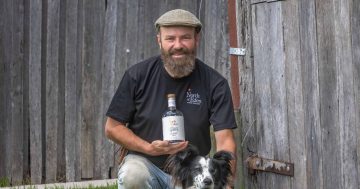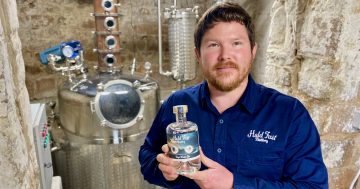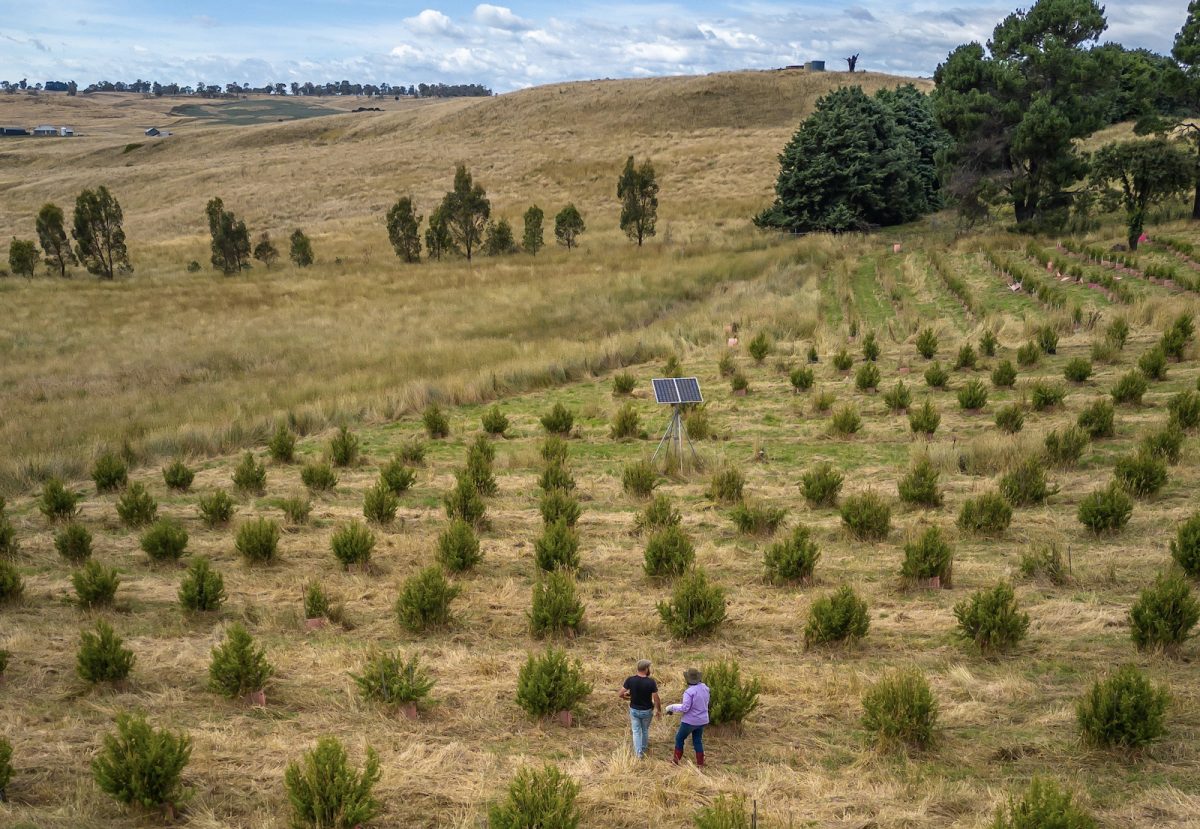
Lucy Vincent and Gavin Hughes among the juniper growing north of Bombala. Photo: David Rogers Photography.
It was 2018 when Karen Touche and Gavin Hughes of North of Eden moved to their Bega Valley property, and began distilling what would quickly become award-winning craft gins.
At the same time just north of Bombala, in the Snowy Monaro region, Lucy Vincent and her husband Bruce Campbell were planting juniper plants, with a view to establishing a juniper industry in Australia.
Juniper (Junipus comminus), an essential element in the making of gin, is a hardy, evergreen conifer. It’s a prickly plant with small black berries that provide gin with that distinctive and unmistakable pine aroma.
Currently most of the juniper berries for gin making in Australia are imported from places such as Macedonia, Italy, Romania and Bulgaria.
The meeting of Gavin and Karen from North of Eden, and Lucy Vincent from Bombala has created a budding partnership. Interestingly each pair utilises regenerative and sustainable practices in their pursuits.
“I really value their focus on quality and use of local ingredients,” Lucy says of the North of Eden duo.
Gavin says, “One of the most unsustainable parts of our business is the fact that our juniper comes from the other side of the planet. If we can source that locally, how good is that? Then it means everything we use comes from this region.”
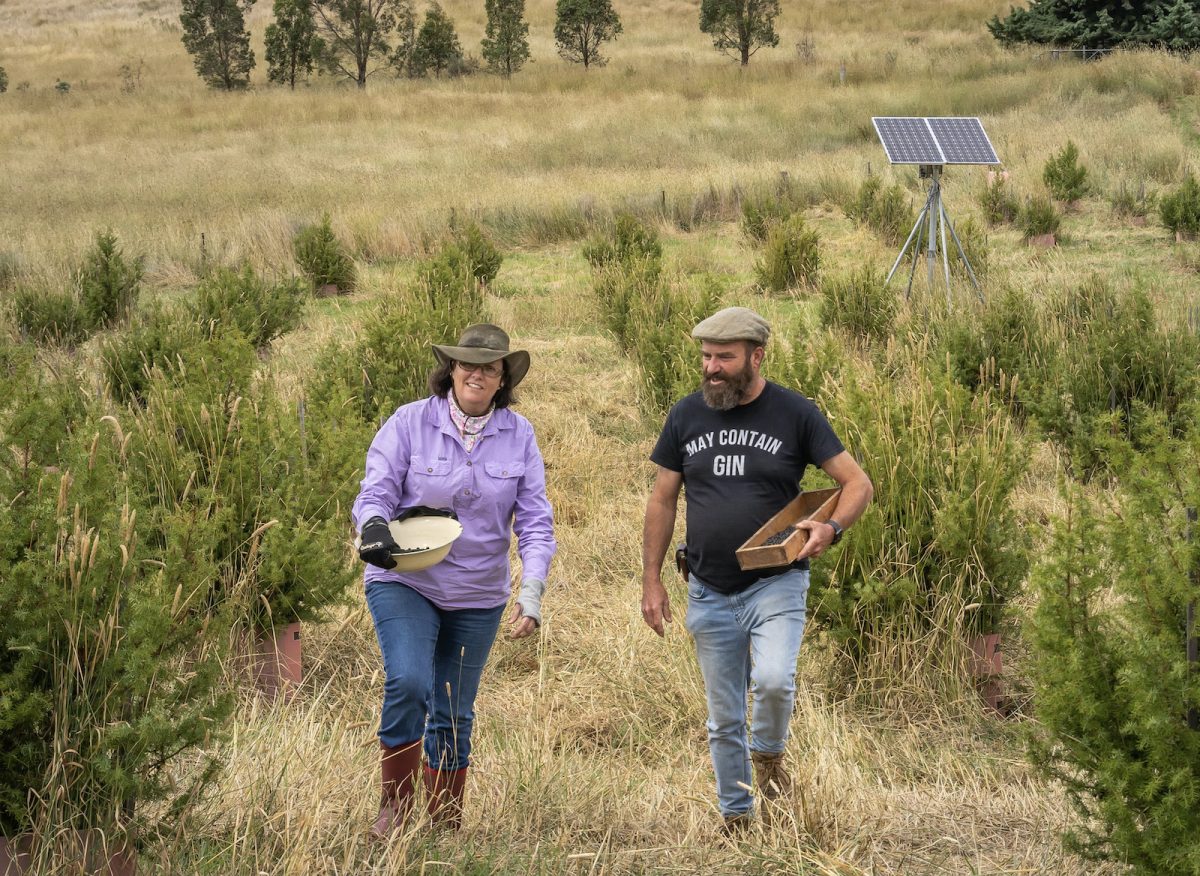
Regenerative and sustainable practices are used by Lucy Vincent and North of Eden Distillery. Photo: David Rogers Photography.
An agricultural scientist who focussed on soils, Lucy had been thinking about growing juniper since 2016. “Most people I approached told me it wouldn’t be commercially viable.
“Essentially the overseas plants are hundreds of years old, hand harvested under licence system much like abalone licences. It’s a very different situation in Australia,” Lucy says.
“I found a nursery in 2016. When I called them, they asked how many I wanted, and I said, ‘Two hundred’! They told me they wouldn’t be ready for two years. I said, ‘That’s fine’ and placed my order.”
Now, Lucy and Bruce can look out over their 500 or so plants. “They are individually sexed wind pollinators, and we plant a ratio of 10 females to one male. They are extremely slow growing so you don’t get a good commercial harvest until the plants are nine or 10 years old.”
This year Lucy will send sample batches from her Bombala plantation and several other growers from around Australia to a laboratory at the University of Tasmania for testing. She will also send berries from Macedonia, Bulgaria and Greece.
“Basically they will analyse the aromatics through gas chromatography. Hopefully testing will show Australian juniper has similarities with the overseas product.”
North of Eden’s Gavin says, “Normally juniper has 50 to 54 per cent alpha pinene and 8 per cent beta pinene, 14 per cent myrene and other turbinoles, and we want to make sure it still has that profile.”
Gavin is building dehydrating cabinets for the 60kg of Bombala juniper berries harvested this month (Feb 2023). He will use the Bombala grown juniper to make a seasonal gin, one that uses local aromatics.
“This one will include fig leaf from the tree next to our house. With a seasonal gin we can showcase this area. We’ve always said we speak to place; our gins are supposed to focus on what’s here, the taste of the Sapphire Coast.
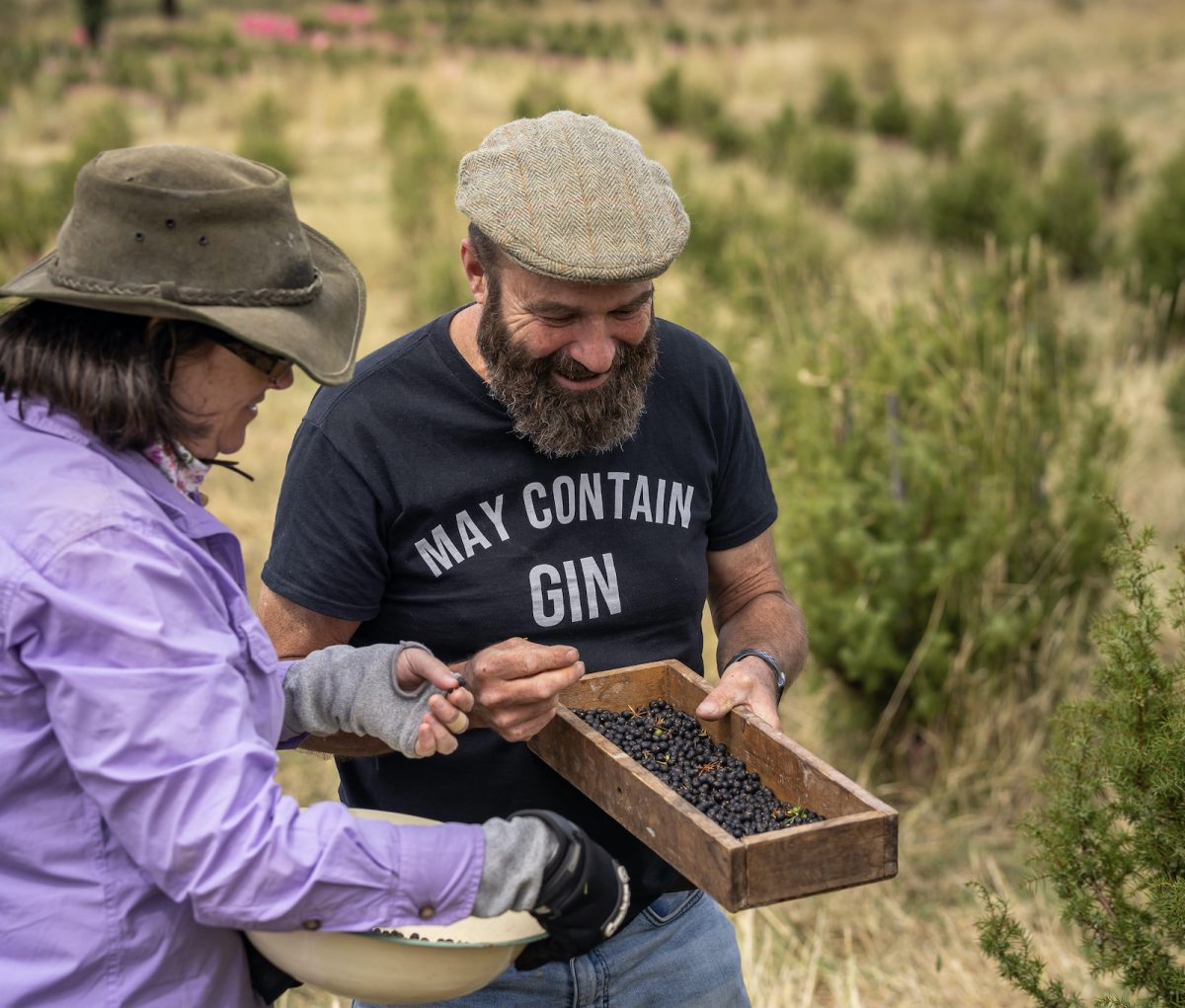
Junipus communis is a hardy, spiky plant of the conifer family, used for gin, also medicinally and as an essential oil. Photo: David Rogers Photography.
“We’re quite small, any larger and Lucy couldn’t supply us. But she couldn’t supply someone like Four Pillars, so it’s a good thing as it gives us the opportunity to source locally.
“This is really a partnership in the sense that we’re learning heaps about juniper, and Lucy is learning about what’s right and not right for us, like the dehydration, which is an art in itself.
“We’ll start with our smaller volume ones and work our way up until we’ve got enough supply. And we know Lucy will be able to supply what we need.”
Lucy says her passion is to drive the establishment of a juniper industry in Australia. She hopes juniper for gin and food will join the emerging industries supported by the Federal Government’s AgriFutures Emerging Industries Program alongside crops such as hemp, sesame, insects and seaweed.
As for the partnership with North of Eden Lucy says, “I hope we have a partnership for many years. I hope that our juniper becomes a commercially viable business and broadly I hope that the Australian juniper industry can be established.”







